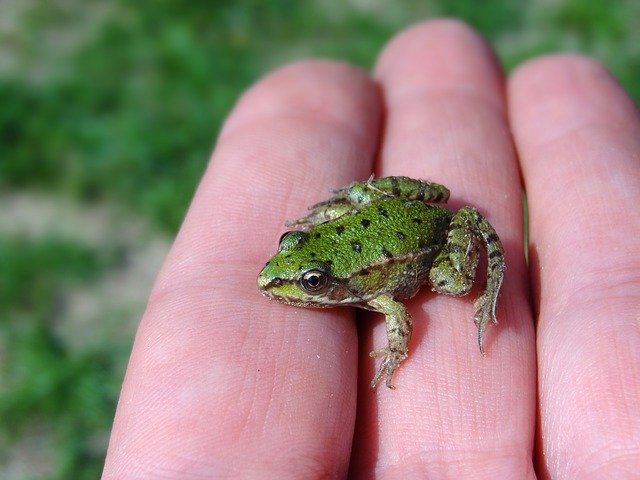- Calls to this hotline are currently being directed to Within Health, Fay or Eating Disorder Solutions
- Representatives are standing by 24/7 to help answer your questions
- All calls are confidential and HIPAA compliant
- There is no obligation or cost to call
- Eating Disorder Hope does not receive any commissions or fees dependent upon which provider you select
- Additional treatment providers are located on our directory or samhsa.gov
Raising Kids While in Recovery from Anorexia

Contributor: Leigh Bell, BA, writer for Eating Disorder Hope
Fat, when it comes to body size, is a bad word in our house. It’s allowed in my children’s food, but not in their vocabulary, because I had anorexia.
In our house, when Mommy (that’s me) marks on the growth chart your latest height — sadly three feet from the first — you’re not getting bigger. You’re getting taller. You’re getting stronger. I don’t buy Barbies, and my kids will tell you Elsa from Frozen needs some protein.
I discuss carefully food, weight, and body image around my young children, two 5-year-old daughters and a 3-year-old son. Maybe I’m walking on too many eggshells, but I have to. Anorexia runs in families.
Losing Life to an Illness
I lost my 20s, and nearly my life, to this horrific illness. When my friends were beginning careers and meeting their future husbands, I was in a cardiac-care unit watching my hair fall out in clumps onto a hospital-blue pillow.
To keep my children from this hell, I will walk on a million of the sharpest eggshells every day.
The Stats Behind Family and Anorexia
Girls with a mom or sister who has or had anorexia are 12 times more likely to develop it; and this risk is 50-80 percent determined by genes (1). Researchers have yet to turn up a consistent relationship between anorexia and a specific gene but strongly hypothesize a genetic link in this eating disorder (2).
A child’s propensity toward anorexia is also affected by environment, for example: exposure to controlling attitudes toward weight and eating may influence the child. Insecure attachment to caregivers and unresolved loss are also potential environmental factors that may influence the development of anorexia (2).
The Sudden Change
 No one in my family openly had an eating disorder. My mother and my only sister, older than me by a decade, never did. They didn’t diet and have long been seemingly comfortable in their bodies.
No one in my family openly had an eating disorder. My mother and my only sister, older than me by a decade, never did. They didn’t diet and have long been seemingly comfortable in their bodies.
So was I. Until college, when suddenly, I wasn’t.
Today my children proudly walk around naked. They eat when they’re hungry and stop when they’re full. They think only old people die and Mommy can beat up Batman.
When They’re Ready
I want them to believe this for as long as the world lets them, and when they finally witness the world’s sadness — hopefully when they are far older — I will tell them about my anorexia. I will say why I starved myself to the point of near-death and finally explain the scars from self-inflicted burns up and down my forearms.
In this future conversation, I hope they recognize perseverance, resilience, and the power to climb from any hole, despite its depth or darkness. And I hope their hearts hear and believe what I tell them every night before bed.
You are smart, precious, beautiful, and loved by so many. Nothing can change this.
About the Author:
Leigh Bell holds a Bachelor of Arts in English with minors in Creative Writing and French from Loyola Marymount University in Los Angeles. She is a published author, journalist with 15 years of experience, and a recipient of the Rosalynn Carter Fellowship for Mental Health Journalism. Leigh is recovered from a near-fatal, decade-long battle with anorexia and the mother of three young, rambunctious children.
References:
- What causes eating disorders. (n.d.). The Alliance for Eating Disorder Awareness website. Retrieved from http://www.allianceforeatingdisorders.com/portal/what-causes-eating-disorders#.VNPgMWTF8vM
- Lask, Brian (2015). Special issue: eating disorders. Journal of Family Therapy. 37 (1), 79-92.
Last Updated & Reviewed By: Jacquelyn Ekern, MS, LPC on March 14, 2015
Published on EatingDisorderHope.com

The EatingDisorderHope.com editorial team comprises experienced writers, editors, and medical reviewers specializing in eating disorders, treatment, and mental and behavioral health.

